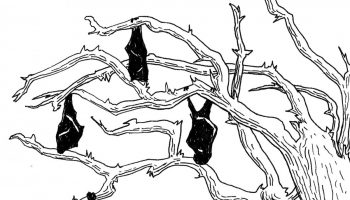
An American’s daily life is driven by forces unseen, but perhaps the strongest force is that of nine unelected individuals constantly shaping United States law.
“The things that keep public order, the things that protect individual property, the things that protect individual mobility, liberty, health, etc. — those are all systems that are in law. That’s all in the Supreme Court’s bucket. The Supreme Court is one of those grand forces, seen and unseen,” said John Barrett, professor of law at St. John’s University.
Barrett will return to Chautauqua for the 16th Annual Robert H. Jackson Lecture on the Supreme Court of the United States at 3:30 p.m. EDT Monday, July 6, on CHQ Assembly. Barrett is welcoming Ruth Marcus, deputy editorial page editor at The Washington Post. Much of the discussion will spark from the research Marcus did for her 2019 book Supreme Ambition: Brett Kavanaugh and the Conservative Takeover.
Marcus has written about Supreme Court appointments since 1987, with President Ronald Reagan’s rejected attempt to appoint Robert Bork. In 1991, she covered the appointment of Justice Clarence Thomas, and the preceding hearings in which former employee Anita Hill accused Thomas of sexual harassment. Her experience covering Thomas and Hill informed her decision to investigate Kavanaugh in her new book.
“After Bork, I covered the Anita Hill-Clarence Thomas hearings. And so when Kavanaugh was nominated, and when Christine Blasey Ford’s allegations arose, it seemed like the combination of the ideological stakes of the Bork battle and the issues of the Clarence Thomas hearings all rolled into one high-stakes nomination battle,” Marcus said. “So, it kind of felt like it was almost destiny for me to write the book.”
Marcus began her decades-long writing career at The Washington Post as an intern while attending Harvard Law School. She attended Harvard with the intention of returning to journalism after graduation, not to practice law. Marcus said it was her way of expanding her horizons and sharpening her way of thought.
While Marcus’ writing experience extends far beyond politics, Barrett invited her to deliver this year’s Jackson Lecture because of her expertise on the Supreme Court. Barrett said that the Robert H. Jackson Lecture has always sought to bring the nation’s top experts to the Institution, which aids the series’ recurring popularity.
“Every year, there’s stuff that’s on the front burner that’s just happened, or is happening, at the Supreme Court,” Barrett said. “In a more enduring way, the Supreme Court has a big way of shaping all of our lives. For Chautauquans to have this opportunity to hear from, think and engage with a top Supreme Court expert is what the lecture is about.”
In the 2020 season, the lecture falls at the end of a Court term that brought rulings protecting scholarship access for students at religious schools, abortion rights, and codifying protections against workplace discriminations for LGBT people. This Court term, according to Marcus, would have interested Jackson himself.
Jackson began his law education as an apprentice at a Jamestown law office outside of Chautauqua. Despite having never attended college, Jackson became a lawyer in 1913 and practiced law for two decades in the area. He moved to Washington D.C. and took on a series of government positions, including Attorney General for the United States during the Franklin D. Roosevelt administration.
On July 11, 1941, Roosevelt nominated Jackson to the Supreme Court, and he was confirmed by the Senate the same day. During his time on the Supreme Court, he served as Chief United States Prosecutor in the Nuremberg Trials. After 13 years as a Supreme Court Justice, Jackson died in 1954 at 62 years old.
“When he died, the eight surviving justices came for the funeral (in Jamestown). They all said, ‘We want to see Chautauqua, we’ve been hearing about it for years.’ Seeing Chautauqua is what the Jackson Lecture has actually accomplished in some very high-level places,” Barrett said.
Much like the surviving justices, Barrett said that many notable figures flock to the Institution because of Jackson, only now it is in the form of a lecture established in his name.





